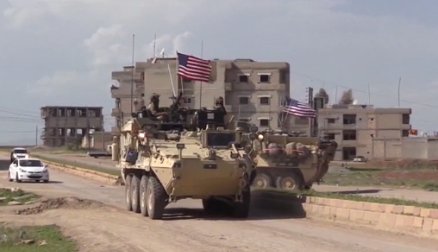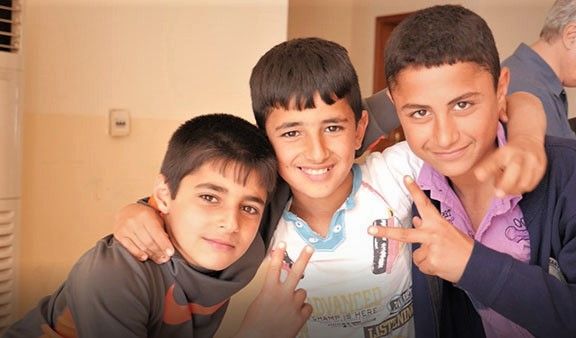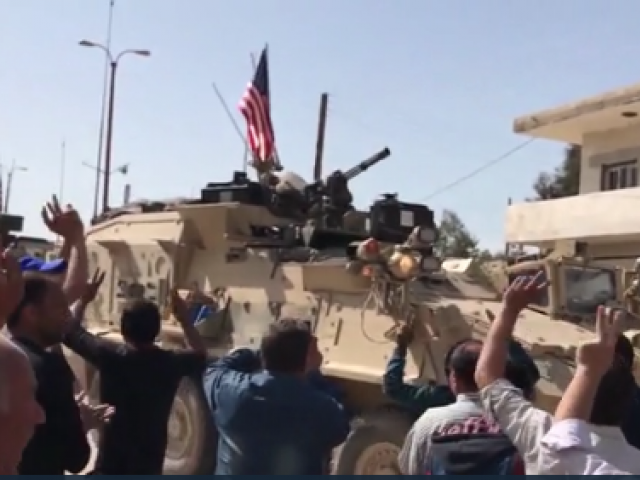Kurds recently cheered the arrival of U.S. troops in Al Darbasiyah, Syria by flashing the V sign and shouting, "Erdogan terrorist!"
U.S. military commanders sent the American troops and armored vehicles over the Turkish border into northern Syria in response to Turkey's recent military air strikes against the YPG, the People's Protection Units.
Turkey's President Recep Tayyip Erdogan can't stand seeing the American flag hoisted side-by-side with the Kurdish YPG flag, but U.S. troops are now acting as a buffer between the two forces because they want to dissuade Turkey from battling a key ally in the effort to defeat ISIS.
Colonel John Dorrian, spokesman for the U.S.-led coalition said the U.S. troops also "conducted patrols, because we had heard of reports of skirmishes between Turkish forces and our partner forces around the border." He explained they wanted to "assess these reports for ourselves, so that we can determine what is the appropriate next step."

When Erdogan meets with Donald Trump later this month he will likely urge the president to back off from his support of the YPG--a group Turkey labels a terrorist organization.
While the United States provides the YPG and the Kurd-dominated SDF (Syrian Defense Forces) with arms and air support, the Turks see them as enemies. They have a long-history of fighting these Kurds for control of parts of southern Turkey-- and more recently parts of northern Syria.
During my numerous visits to Syria and Iraq, some Kurds have told me that Erdogan has provided arms and men to help ISIS fight against the YPG and other Kurdish forces.
If true, it would mean that America's NATO ally may actually be acting in opposition to vital U.S. security interests in the region. The Kurds say President Trump should not allow that to happen because it is in the Kurds' best interest (and America's) to continue a close partnership.
And maintaining close ties may also be in the best interests of Syrian and Iraqi Christians who are facing genocide in the region. Autonomous Kurdish governments in both countries have reached out to shelter and help the besieged Christians.
Without Kurdish help, the ancient Christians communities may have been exterminated by ISIS and other Islamic extremists.

So, what will President Trump do?
He's already put trust in U.S. commanders to strategize and stage America's military efforts in the region. They know the Kurds are America's best friends in this war against ISIS.
And that opinion is unlikely to change despite the urgings of the Turkish president.










